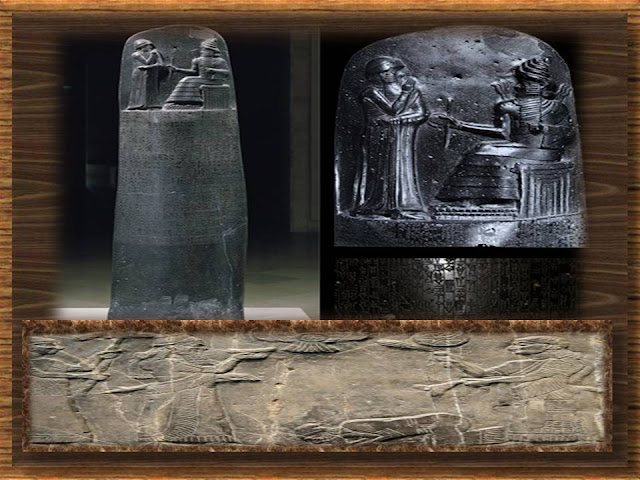The Catholic Church has this teaching pertaining to what happens
to every soul at the moment of death[1] that
God only continues what is there at death. That anyone who is in a state of
Heaven at the time of death, God continues this Heaven; if anyone is in a state
of Purgatory at death then God continues this Purgatory until Heaven is
achieved in her/him; and if anyone is in a state of Hell before death then
hopefully the grace of God will get her/him out of it before one dies because
if anyone does not get out of it then it will continue in her/him for eternity.
Anyone just continue her/his life after death in the state that
one has acquired in life. Nevertheless, there are circumstances that would
alter this. Anyone who makes a good and truthful confession before death like
the thief on the cross then this Heaven will come to anyone. If someone makes
prayers to do reparation for anyone then God will give this Heaven to anyone.
The 40 day memorial service for any soul is asking God to grant
His graces to that soul in order for that Heaven to be set in if that particular
soul is still in the Purgatory state. Forty days or even the number of
years of lives of those who pray for the departed may not be enough (which
attempts to preempt God’s purgation period) because it’s only God who knows
when will be that soul be finally taken to His bosom but the beauty of it is
the continued hope of salvation through prayers. And it is virtuous enough to
pray for the departed than disremembering them after their death. The souls in
need of graces are still in Purgatory.
Certain Judgment[2] takes
place at death. The soul goes to heaven, hell or purgatory. Destined either to
heaven or hell, there is no chance of leaving either before or after 40 days
from the time death. Purgatory is not essentially 40 days for everyone or
anyone. It may be hours, days, weeks, years, centuries, or millennia depending
on the individual person and the attachment to sin and temporal punishment due
to sin accumulated in their entire lives. The soul does not wander the earth
for 39 or 40 days. The soul is judged and goes directly to heaven, hell or
purgatory than remains on earth to haunt houses, reincarnate or walk the earth
as ghosts. (Catechism of the Catholic Church 1013;
Hebrews 9:27)
The Reckoning
Death ends human life as the occasion unlock to either receiving
or denying the divine grace revealed through Jesus. The New Testament expresses
of judgment predominantly in its aspect of the final encounter with Christ in
His second coming, but also constantly asserts that everyone will be
recompensed instantly after death in accordance with his works and faith (2
Timothy 1:9-10). The parable of the poor man Lazarus and Jesus’’ words on the
cross to the good thief, as well as other New Testament texts speak of a final
destiny of the soul, a destiny which can be different for some and for others
(Luke 16:22; 23:43; Matthew 16:26; 2 Corinthians 5:8; Philippians 1:23; Hebrew
9:27; 12:23)
Everyone gets her/his infinite retribution in her/his immortal
soul at death, in a specific judgment that refers her/his life to Christ:
either admission into the blessedness of heaven-through a purification or
immediately, or instant and eternal perdition, as everybody shall be judged on
each one’s love (St. John of the Cross, Dichos 64)
The ultimate cleansing or Purgatory
Everyone who dies in God's grace and friendship, but remains
imperfectly cleansed, are undeniably indeed ensured of eternal redemption; but
after death they undergo cleansing, so as to triumph the holiness significant
into the joy of heaven.
The Church accords the name Purgatory to this ultimate cleansing
of the elect, which is totally dissimilar to the retribution of the damned.It
formulated her doctrine of faith on Purgatory especially at the Councils of
Florence and Trent. The tradition of the Church, by reference to certain texts
of Scripture, speaks of a cleansing fire (1
Corinthians 3:15;1 Peter 1:7):
When it comes to specific lesser offenses, everybody must believe
that, before the Final Judgment, there is a purifying fire. Jesus who is truth
says that anyone who speaks blasphemy against the Holy Spirit will be forgiven
neither in this age nor in the age to come, which indicates that particular
transgression can be pardoned in this age, but particular others in the age to
come (Matthew 12:31).
This doctrine is also founded on the practice of prayer for the
dead, "Therefore he [Judas Maccabeus] made atonement for the dead, that
they might be delivered from their sin." (2 Maccabees 12:46) Since the
start, the Church has honored the memory of the dead and offered prayers for
them, above all the Eucharistic sacrifice, so that, thus purified, they may
attain the beatific vision of God. The Church also commends almsgiving,
indulgences, and works of penance undertaken on behalf of the dead as St. John
Chrysostom encourages to help and remember them. Job's sons were purified by
his sacrifice, so there’s no doubt that everybody’s offerings for the dead
bring them some succor. So everybody should not delay to help the departed and
to offer prayers for them. (St. John Chrysostom, Hom. in 1 Corinthians.
4:1-5:PG 61,361; Job 1:5)
The Intercessory Prayer as Urgent Help
Intercessory prayer leads everyone to pray as Jesus did,
interceding with the Father on behalf of all men, especially sinners.( Romans
8:34; 1 John 2:1; 1 Timothy 2:5-8) Jesus is “always able to save those
who approach God through Him, since hHe lives forever to make intercession for
them.” ( Hebrews 7:25.) The Holy Spirit "Himself comes to the aid of our
weakness; for we do not know how to pray as we ought, but the Spirit itself
intercedes with inexpressible groanings."( Romans 8:26-27)
Starting from Abraham, intercession (asking on behalf of another)
has been an attribute of a heart attuned to God's mercy. In Church’s existence,
Christian intercession partakes in Jesus', as an expression of the communion of
saints. Anyone who prays looks "not only to her/his own interests, but
also to the interests of others," even to the point of praying for those
who harm her/him.(Philippians 2:4; Acts 7:60; Luke 23:28,34)
The earliest Christian communities articulated this form of
fellowship passionately.(Acts 12:5; 20:36; 21:5; 2 Cor 9:14). Thus the Apostle
Paul provides them a share in his ministry of preaching the Gospel (Ephesians
6:18-20; Colossians 4:3-4; 1 Thessalonians 5:25) but also intercedes for them.(
2 Thessalonians 1:11; Colossian 1:3; Philippians 1:3-4) The intercession of
Christians sees no boundaries: "for all men, for kings and all who are in
high positions," for persecutors, for the salvation of those who reject
the Gospel.(2 Timothy 2:1; Romans 12:14; 10:1)
In conclusion,God does not desire for a single soul to go to hell.
Thus, in the Eucharistic liturgy and in the daily prayers of the Church’s
faithful, she beseeches God’s mercy, who does not want "any to perish, but
all to come to repentance"( 2 Peter 3:9), as the Church articulates (Catechism
of the Catholic Church CCC 1037):
Father, accept this
offering
from your whole
family.
Grant us your peace
in this life,
save us from final
damnation,
and count us among
those you have chosen.
|
(Roman Missal, EP I
(Roman Canon) 88
|




























No comments:
Post a Comment